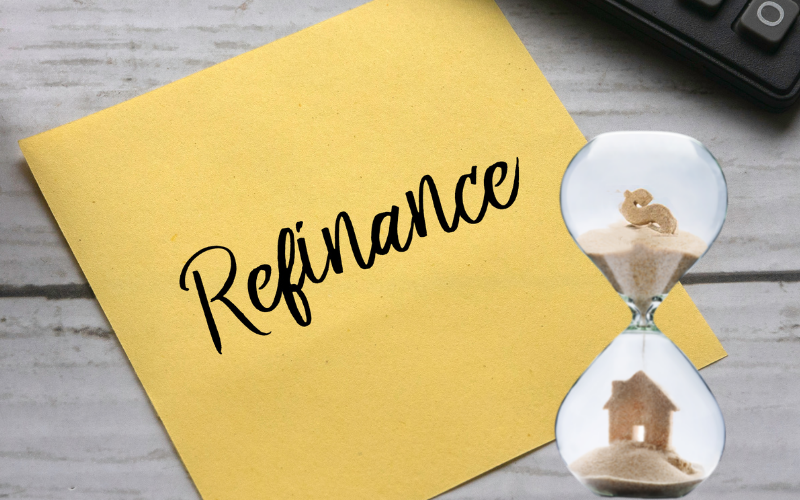 If you are purchasing a house for the first time, you are probably excited to imagine what your life might look like in a bunch of different houses. At the same time, the process can be a bit overwhelming. The housing market is competitive right now, the financing process can be confusing, and you might not know exactly what you are looking for. What are a few of the most important tips first-time home buyers need to know?
If you are purchasing a house for the first time, you are probably excited to imagine what your life might look like in a bunch of different houses. At the same time, the process can be a bit overwhelming. The housing market is competitive right now, the financing process can be confusing, and you might not know exactly what you are looking for. What are a few of the most important tips first-time home buyers need to know?
Reach Out To Experts For Help
First, you need to reach out to professionals who can help you during the process. For example, you should always reach out to a real estate agent with local knowledge. That way, they can help you figure out what house is best for your needs. You should also reach out to a local loan officer for a pre-approval letter. This will make your offer more competitive, and it will give you a budget with which to work.
Figure Out Your Down Payment
You need to figure out how much money you have for a down payment. If you are buying a house for the first time, you might be able to qualify for an FHA backed loan, which may allow you to purchase a house for less than 20 percent down. You may want to talk to an expert about how much money you should put towards your down payment versus how much money you should use to pay off other sources of debt.
Keep Your Finances Stable During The Closing Process
After an offer has been accepted, you must make sure you keep your finances stable during the closing process. You do not want to pull money from your down payment for other big expenses, and you should not open any new credit cards. You should also try to avoid switching jobs during this time. Your loan officer will do a deep dive into your finances, and you must make sure everything is stable.
Get Ready To Buy A Home
Even though purchasing a house for the first time can be daunting, there are experts who can help you. As long as you have the right team behind you, you should find the right house to meet your needs.
 Last week’s economic reporting included readings from the National Association of Home Builders on national and regional U.S. housing markets. The National Association of Realtors® reported on sales of previously-owned homes, and the Commerce Department released readings on building permits issued and housing starts. Weekly readings on mortgage rates and jobless claims were also released.
Last week’s economic reporting included readings from the National Association of Home Builders on national and regional U.S. housing markets. The National Association of Realtors® reported on sales of previously-owned homes, and the Commerce Department released readings on building permits issued and housing starts. Weekly readings on mortgage rates and jobless claims were also released. If your financial situation has changed, you might be interested in refinancing your mortgage. In general, refinancing means that you will replace your current mortgage with a new one. The process of refinancing is similar to the process of applying for a mortgage, but you need to think about your goals during the refinancing process. That way, you can put yourself in the best financial position to be successful.
If your financial situation has changed, you might be interested in refinancing your mortgage. In general, refinancing means that you will replace your current mortgage with a new one. The process of refinancing is similar to the process of applying for a mortgage, but you need to think about your goals during the refinancing process. That way, you can put yourself in the best financial position to be successful. Flooding can happen in any location at any time. Even though many people associate floods with coastal properties, flooding can take place inland as well. That is why you always need to take a look at the map to figure out whether your property is located in a flood zone. There are some situations where your lender might require you to purchase flood insurance. What do you need to know?
Flooding can happen in any location at any time. Even though many people associate floods with coastal properties, flooding can take place inland as well. That is why you always need to take a look at the map to figure out whether your property is located in a flood zone. There are some situations where your lender might require you to purchase flood insurance. What do you need to know? The housing market today is very competitive, and you might be wondering how you can get your offer accepted. If the seller has multiple offers on the table, it can be a bit of a challenge. Many people assume that the best way to get an offer accepted is to offer the most money. Even though that is certainly helpful, there are several other tips you should follow to make sure your offer is the one the seller picks.
The housing market today is very competitive, and you might be wondering how you can get your offer accepted. If the seller has multiple offers on the table, it can be a bit of a challenge. Many people assume that the best way to get an offer accepted is to offer the most money. Even though that is certainly helpful, there are several other tips you should follow to make sure your offer is the one the seller picks. Last week’s economic reporting included readings on month-to-month and year-over-year inflation and the minutes of the most recent meeting of the Federal Reserve’s Federal Open Market Committee. The University of Michigan published its preliminary consumer sentiment reading and weekly reports on mortgage rates and jobless claims were also released.
Last week’s economic reporting included readings on month-to-month and year-over-year inflation and the minutes of the most recent meeting of the Federal Reserve’s Federal Open Market Committee. The University of Michigan published its preliminary consumer sentiment reading and weekly reports on mortgage rates and jobless claims were also released. If you are interested in purchasing a house, you need to review all of the offers available. The vast majority of loan officers are going to talk about something called qualifying mortgages, which is usually shortened to QM. You may be asking, what is a non-qualifying mortgage? This is usually shortened to Non-QM, and it simply means that the loan does not conform with the rules and regulations put in place by the Consumer Financial Protection Bureau, usually shortened to CFPB. What are the differences between a QM and Non-QM mortgage, and which one is right for your needs?
If you are interested in purchasing a house, you need to review all of the offers available. The vast majority of loan officers are going to talk about something called qualifying mortgages, which is usually shortened to QM. You may be asking, what is a non-qualifying mortgage? This is usually shortened to Non-QM, and it simply means that the loan does not conform with the rules and regulations put in place by the Consumer Financial Protection Bureau, usually shortened to CFPB. What are the differences between a QM and Non-QM mortgage, and which one is right for your needs? You have worked hard for your money, and you probably want to save as much of it as you possibly can. That means you need to find the best possible mortgage deal you can. What are a few steps you should take if you want to get the best loan terms possible?
You have worked hard for your money, and you probably want to save as much of it as you possibly can. That means you need to find the best possible mortgage deal you can. What are a few steps you should take if you want to get the best loan terms possible? While it is sometimes the best option to get your finances repaired, the bankruptcy and following discharge period can be tough. However, while it may delay things for a couple of years, the good news is that even a bankruptcy won’t stop you from borrowing a mortgage to buy a home. In today’s article, we will share some insight into how you can get a mortgage loan after going through bankruptcy.
While it is sometimes the best option to get your finances repaired, the bankruptcy and following discharge period can be tough. However, while it may delay things for a couple of years, the good news is that even a bankruptcy won’t stop you from borrowing a mortgage to buy a home. In today’s article, we will share some insight into how you can get a mortgage loan after going through bankruptcy.